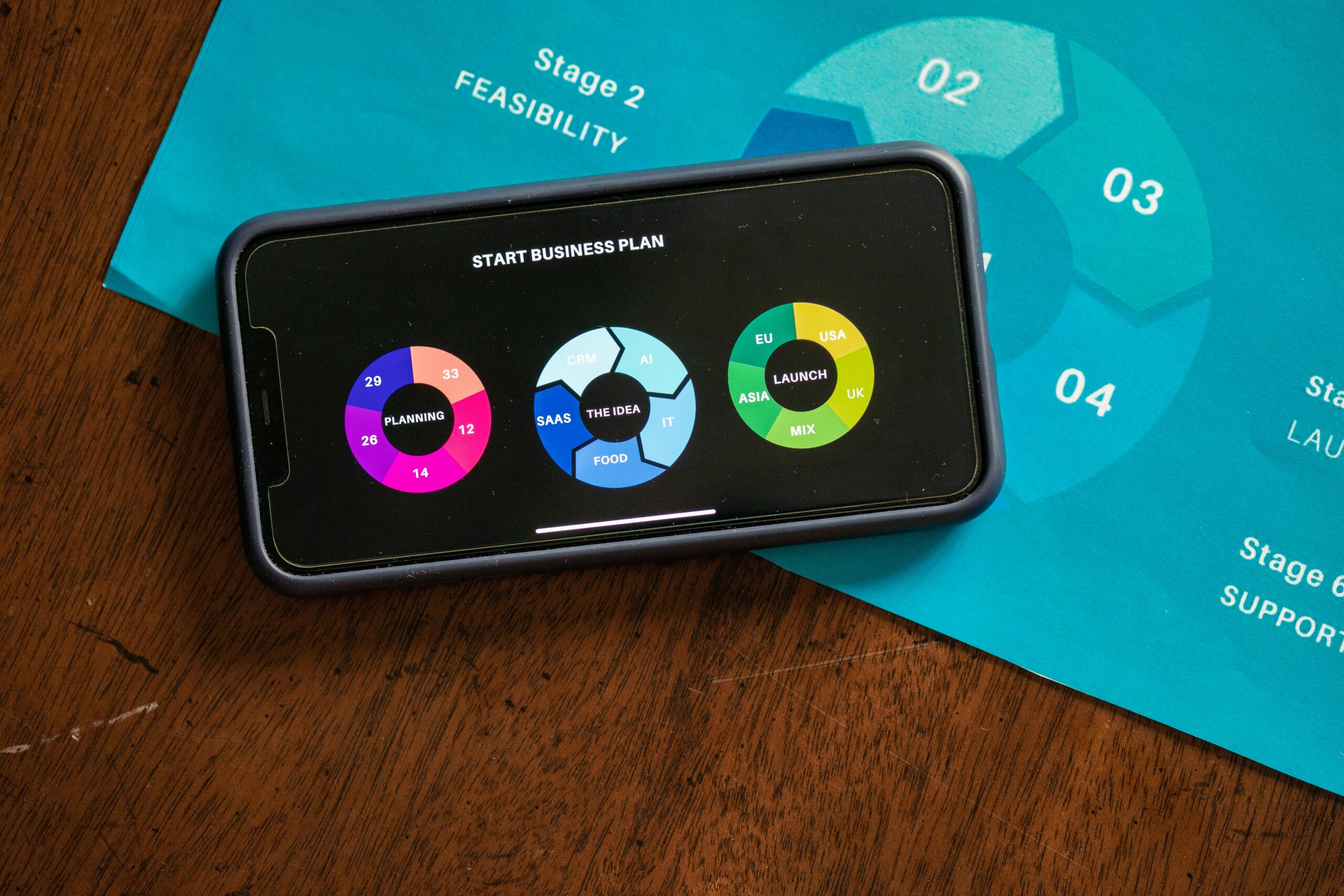Smart Guide to Launching Your Own Competition Strategy in 2025
As we step into 2025, organizations are increasingly recognizing the power of competitions as a catalyst for innovation, audience engagement, and brand loyalty. A well-structured competition strategy serves not only to attract participants but also to build a loyal community around your brand. This comprehensive guide will provide insights on developing a winning competition strategy, covering fundamental topics such as target audience analysis, budget allocation, promotional activities, and post-event evaluation.
Engaging your audience through contests can significantly enhance your marketing plan by providing branding opportunities and promoting social media outreach. Additionally, understanding the importance of strategic planning enables you to create a timeline that ensures a seamless event logistics experience. This article will outline the key components for a successful contest organization and share practical tips for enhancing participant recruitment and community involvement.
Here’s what you can expect to learn: effective engagement tactics, ways to create compelling prize distributions, techniques for utilizing social media reach, and much more. With the right approach, your competition can become an unforgettable event that not only resonates with participants but also meets your business objectives.
Establishing Your Contest Objectives and Audience
In order to successfully launch your competition, clearly defining your contest objectives is crucial. These objectives will guide the strategic planning needed to meet your business goals. To start, consider what outcomes you want from the contest, such as increasing brand awareness, generating leads, or fostering community involvement. Each goal should align with your overall marketing plan.
Identifying Your Target Audience
A thorough analysis of your target audience is essential to tailor your contest to their interests and needs. By understanding demographic variables such as age, location, and online behavior, you can create content and promotional activities that appeal directly to them. This segmentation allows for more personalized and engaging competition experiences.
Incorporate community insights and consumer behavior analysis to refine your target audience further. Utilize survey tools to gather feedback on what potential participants seek in a competition, thus equipping you with the critical information necessary for success. Monitoring social media analytics during this phase can also provide valuable insights regarding audience preferences.
Clear Competition Rules and Prize Distribution
Establishing clear contest rules and guidelines helps avoid confusion and builds trust among participants. Clearly stating eligibility criteria, entry methods, and judging criteria are vital to ensure transparency. Make this information easily accessible and promote it through your chosen advertising channels.
Prize distribution can significantly impact the perceived value of your contest. Carefully consider the types of prizes that will incentivize participation, as this will also foster engagement and enhance audience retention. Be creative – think beyond traditional prizes. Offering unique experiences or exclusive products can further entice potential entrants.
Cultural Sensitivity and Community Building
When planning your contest, it’s important to factor in cultural sensitivities and inclusivity. Engaging with diverse communities can broaden your participant pool and enhance brand loyalty. Aligning your competition with community values will lead to higher engagement and positive sentiment toward your brand.
Building relationships with brand ambassadors is another essential strategy. They can amplify your reach through their networks, contributing to effective event promotion. By fostering a sense of community involvement, your contest can transform into a platform for collective engagement, creating memorable experiences for everyone involved.
Effective Promotional Activities for Your Contest
Once you’ve established the foundational aspects of your competition, it’s time to explore promotional activities. Utilizing a multi-channel approach can effectively increase visibility and participation rates. This naturally leads us to the next essential step in the process.
Maximizing Social Media Outreach
Social media platforms serve as powerful tools for event marketing. Create engaging multimedia content that captures attention and promotes your contest across various channels. Employ a mix of organic and paid promotion strategies, utilizing influencer partnerships to reach a wider audience.
Incorporate interactive elements such as polls, quizzes, or countdowns to create excitement and anticipation among your followers. Consistent communication leading up to the launch of your competition is crucial, ensuring that participants feel involved even before the event begins. Using creative content marketing techniques will enhance your engagement tactics and strengthen your online presence.
Engaging with Community Partners
Collaboration with local businesses or organizations can enhance your competition’s reach and authenticity. Establishing sponsorship acquisition opportunities not only furthers resource pooling but also builds stakeholder engagement. These partnerships can lead to additional promotional materials and outreach strategies that can significantly bolster your efforts.
Cross-Promotion and Media Partnerships
Cross-promotion tactics can effectively amplify the impact of your competition. By collaborating with brands that share a similar audience, you can reach potential participants who may not be familiar with your organization. Additionally, building media partnerships for press releases and coverage can enhance your contest’s visibility, appealing to wider audiences and creating buzz around the event.
Community outreach initiatives can also reinforce your brand’s commitment to shared values, generating goodwill and spurring participation. These collaborative strategies ensure a smooth event promotion, maintaining momentum until the competition’s conclusion.
Timeline Creation and Event Logistics
With effective promotional strategies in place, it’s now time to develop a detailed timeline and oversee event logistics. Proper timeline management ensures that all facets of the competition flow logically, allowing you to allocate budget resources efficiently.
Creating an Effective Contest Timeline
Your competition timeline should clearly outline key milestones and deadlines. This includes the pre-event phase, entry period, judging, and announcement of winners. By defining these stages, you ensure that all team members are aligned and aware of their responsibilities, leading to a more organized execution.
Utilizing performance monitoring tools throughout the timeline can also help you track progress effectively. This enables timely adjustments to strategies, optimizing event success metrics.
Managing Event Logistics
Event logistics encompass everything from location selection to technology needs for virtual contests. Ensure that all logistical elements are planned in advance to help minimize last-minute issues. Collaborating with vendors and understanding competitor analysis aids in securing essential resources and support. Consider creating checklists to streamline these processes.
Incorporating Technology for Enhanced Experience
Adopting digital solutions can greatly enhance participant experience and engagement. For online contests, ensure user-friendly platforms that allow for seamless interaction. Evaluate analytics capabilities to track participant behavior, thus informing real-time adjustments to engage your audience more effectively.
Engagement Metrics and Post-Event Analysis
Following the culmination of your competition, evaluating its success and impact is essential. By analyzing engagement metrics and gathering participant feedback, you can glean valuable insights for future contests. This stage is critical in understanding what worked and what required improvement.
Collecting Feedback for Improvement
Establish feedback mechanisms early on, providing participants with surveys or direct channels to share their experiences. This not only fosters a sense of community but also offers direct insights into participant satisfaction and overall event effectiveness. Implementing feedback collection techniques ensures your contest evolves and meets changing audience expectations.
Analyzing Success Metrics
Identifying key success metrics is essential for evaluating your competition’s impact. Utilize measurement tools to track overall participation, conversion rates, and return on investment (ROI). Reviewing these metrics affords you data-driven decision-making capabilities, allowing for effective strategic planning for future endeavors.
Moreover, case studies and event outcomes can provide actionable lessons, serving as a foundation for ongoing enhancements to your competition strategy.
Crafting Follow-Up Communications
After the competition, maintain your connection with participants through follow-up communications. This could be appreciation emails, sharing event highlights, or announcing future opportunities. Engaging in ongoing conversations with your audience keeps your brand top-of-mind, helping in sustaining audience loyalty and interest.
Conclusion: The Path to a Thriving Competition Strategy
Launching your own competition strategy in 2025 involves strategic planning, effective outreach, and thorough evaluation. Combining these elements empowers your organization to engage successfully with your target audience while meeting brand objectives. Remember to prioritize participant experience and community involvement to create impactful and memorable competitions that resonate long after the event concludes.
Utilizing various promotional activities, managing logistics, and conducting post-event analysis will enhance your competition strategy, making it a vital component of your marketing plan going forward. Together, these efforts can bring your brand to new heights, establishing a competitive edge in the marketplace.

